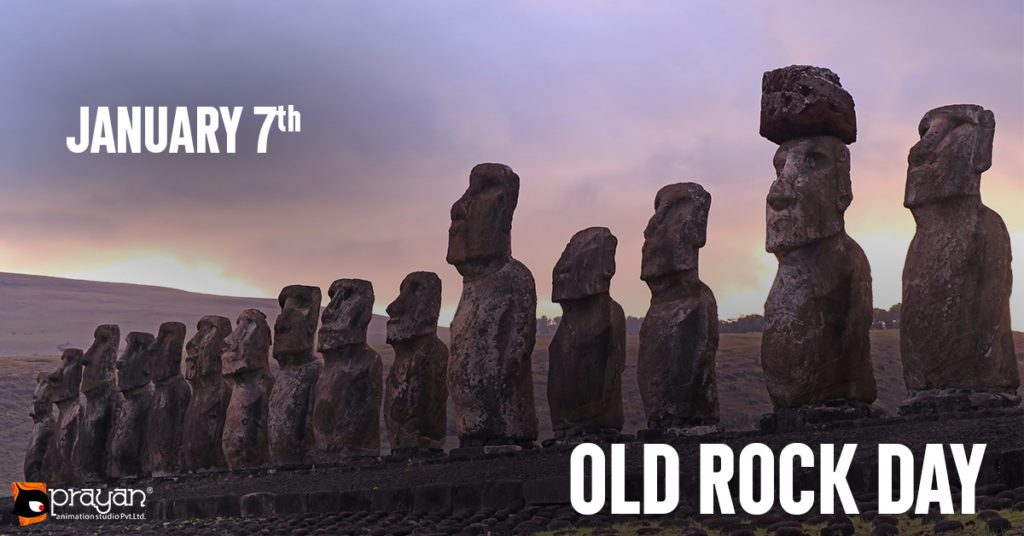7th January: Old Rock Day

January 7 is Old Rock Day. The unofficial holiday encourages people to acknowledge, celebrate, and learn more about old rocks and fossils.
Old Rock Day, despite some misconception, is not a day of celebrating classic Rock ‘n’ Roll tunes of days gone by but is, in fact, the day that Geologists and amateur rock enthusiasts take it upon themselves to show their appreciation of all things fossilized and stony.
A rock is a solid mass made of minerals or mineral-like substances. Used for a variety of purposes throughout the history of humankind – as tools, musical instruments, weapons and for mining – rocks form the outermost layer of Earth.
While natural processes – volcanic eruptions and erosion – continually help create rocks on Earth, old rocks are especially important to those who study the Earth and its history. Old rocks hold many answers to the mysteries of Earth’s formation – they can tell scientists about natural events that played a role in the formation of the rocks and the effects that event had on other life forms in the area.
Old rocks can also sometimes hold fossils – the preserved remains of animals, plants and other organisms. These fossils can help scientists find out the kind of flora and fauna that existed in the past and what may have caused them to evolve or go extinct.
Geologists date old rocks using a technique called radiometric dating or radioactive dating. The process involves looking at the decay of radioactive elements available in rocks. The oldest rock of terrestrial origin to be dated using this method is a zircon found in the Jack Hills of Australia. Scientists estimate that the rock could be as old as 4.4 billion years.
Hashtags: #OldRockDay














 We can help you.
We can help you. 




